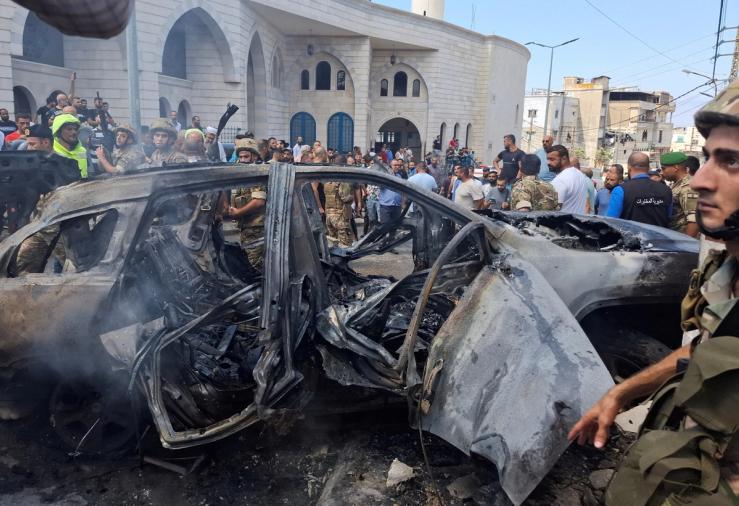The News
Israel and Hezbollah exchanged rocket fire on Wednesday, underlining the risks of a widening Middle East conflict amid US efforts to resurrect flailing ceasefire talks over the war in Gaza.
The latest strikes across the Israel-Lebanese border came as a Greek-flagged oil tanker was set ablaze in the Red Sea as a result of suspected rocket fire by Yemen’s Houthis.
SIGNALS
Ceasefire deal looks elusive
US Secretary of State Antony Blinken described his ninth visit to the region as “probably the best, maybe the last opportunity” for reaching a ceasefire deal in Gaza, but neither side appears to have relented on their red lines. Israeli Prime Minister Benjamin Netanyahu insists his troops must retain a presence in the Philadelphi corridor, along the border between Gaza and Egypt, to prevent Hamas from smuggling in weapons. And his broader political survival relies on the ongoing goodwill of war-supporting far-right ministers. Hamas’ own “schisms” are also getting in the way, The Economist noted: The group’s main negotiator, Zaher Jabarin, is feuding with the head of finances and prisoner affairs.
A ceasefire could bolster Hezbollah — but there may be no good alternatives
US envoy Amos Hochstein said last week that a Gaza ceasefire could prevent all-out war between Israel and Hezbollah. But this logic inadvertently adopts Hezbollah’s position that cross-border hostilities will only end once Israel halts its military campaign in Gaza, and a ceasefire achieved under these conditions would only lend credence to Hezbollah’s victory narratives, a fellow at a US-based neoconservative think tank argued in Haaretz. But if the war with Hamas and Hezbollah continues, Israel will continue “galloping towards the abyss” and “collapse in no more than a year” under the weight of intensified violence in the occupied West Bank, a crashing economy, and pariah status on the international stage, a former IDF commander argued.
Iran may have reassessed vow to retaliate
Iran’s vow to retaliate against Israel for the assassination of Hamas political chief Ismail Haniyeh hasn’t (yet) come to pass; a senior figure in Tehran’s Revolutionary Guard Corps this week hinted delays, suggesting that “national interests and domestic considerations are outweighing ideological fervor,” at least for the time being, The New York Times noted. One calculation might be that new President Masoud Pezeshkian is set to make his international debut at the United Nations’ General Assembly mid-September, where he is expected to deliver a message of “change and moderation, not war and mayhem,” analysts said.


